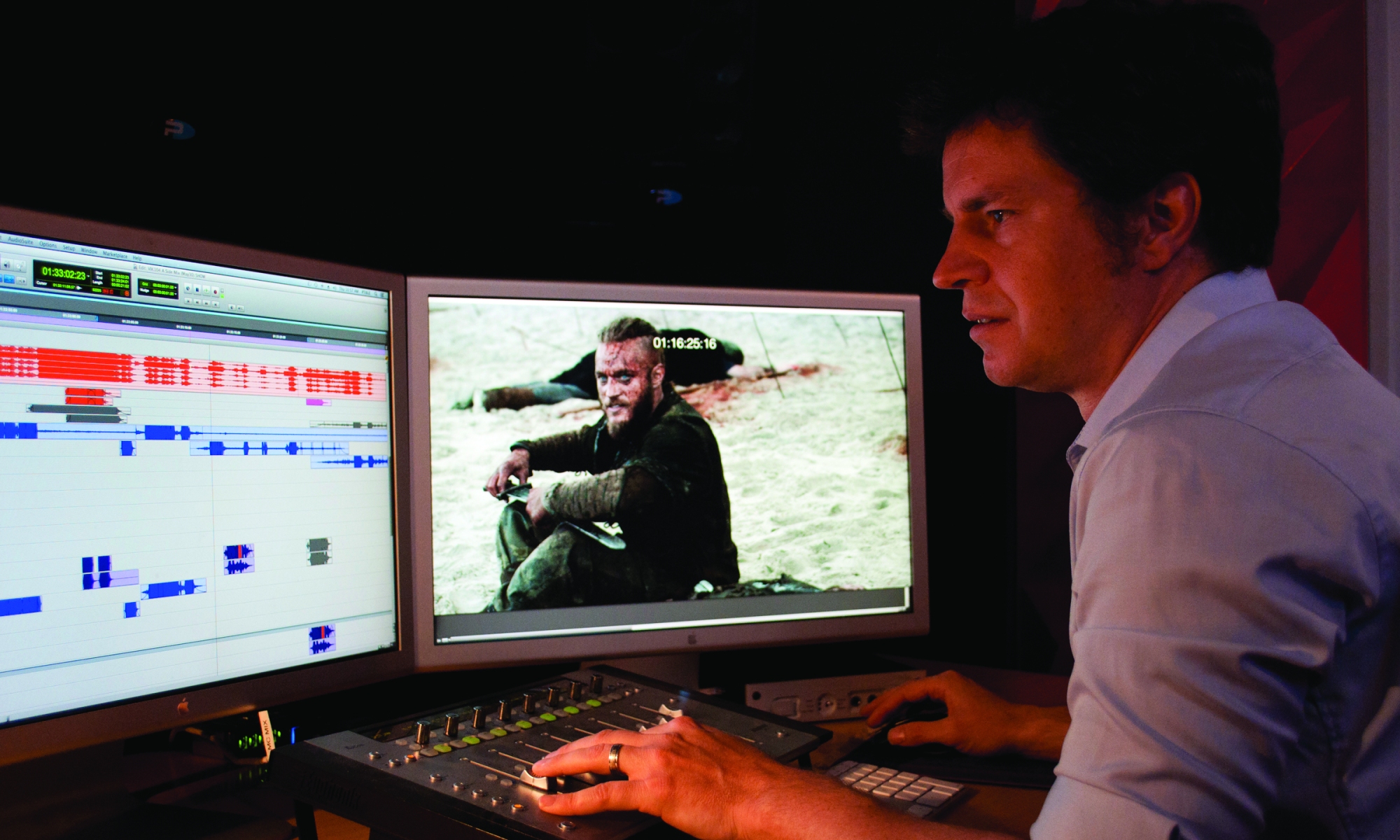Michael Ausiello is founder and editor in chief of TVLine. This story appeared in the June 19 issue of AwardsLine.
If there were an Emmy category for rawness, Andrew Lincoln wouldn’t just be under consideration for a nomination, he’d be the frontrunner for the win. The work the actor did on AMC’s The Walking Dead this past season as grieving Sheriff Rick Grimes felt so real that, at times, it was difficult to watch. (He didn’t even watch himself!) Here, the 39-year-old Englishman opens up about how he approached his widowed character’s breakdown and whether he thinks Emmy voters will be able to overcome their genre bias to give him and his hit cable series a chance.
It was such an intense season for you. How did you recover and wind down after playing all of that rage and desolation?
It is a brutal and dark place you have to inhabit, but I’m very good at disengaging. And there’s no better way to unplug than having children. Changing diapers is one of the most leveling things that has ever happened to me. Realizing that my children are the center of the universe and not me is probably one of the greatest ways to acclimatize.
Your former leading lady, Sarah Wayne Callies (who plays Lori, his TV wife), told me last fall, “When Andrew goes down the rabbit hole, he goes all the way down.” What did she mean exactly?
I love acting. I just love it. It’s in my bones. I remember when I was a kid, I watched an interview with Dennis Hopper talking about Jimmy Dean on the set of Rebel Without a Cause. Jimmy said to him, “If you’ve got to cry in a scene, you’ve got to cry. Make it real.” And that’s all that I believe in.
Sarah also mentioned that you didn’t want her on the set the day you shot the big scene where Rick learns Lori died. Why?
Because she (had already been killed off). A lot of it is about feeling relaxed enough to make mistakes, or to look like a fool, or to dare to go to a place that I wouldn’t necessarily go to. Maybe I was a bit self-conscious with Sarah being there and not wanting to turn that scene into a spectator’s sport. I admire her so much as an actress, and I was so upset about losing her as (a costar) that I just wanted to do it justice—do her justice.
How did you gear up mentally for that scene?
I just took myself away for a couple of hours while they were setting up and listened to a song and got into a place that wasn’t very happy.
What song were you listening to?
It was Snow Patrol and Martha Wainwright’s “Set the Fire to the Third Bar.” Don’t listen to it. You might end up collapsing. (Laughs.)
Your TV son Chandler Riggs (Carl) played a big role in that scene. He essentially telegraphs the news to Rick about Lori’s death. What was it like playing a scene like that with, essentially, a child?
Chandler Riggs is just the most intuitive, wise boy; he’s a wonderful actor. And as a father, as a human being, you just see that. (Rick getting) confirmation from (Carl that Lori died) broke me. I spoke to the director and said, “I think it’s vital that this guy that’s been so stoic and the linchpin of this group needs to drop his gun. And you need to see him fall to the ground. I think you need to see him taken down by this news.” This is a man whose instincts to survive have been driven primarily by two people—and one of those people is dead. It’s like taking his balance away.
Why do you think the Emmys have been slow to embrace the show?
I don’t really think about it too much, in all honesty. It was (former exec producer) Frank (Darabont) and everybody at AMC’s intention to elevate the genre. As soon as I mention the word “genre,” people make an (assumption), don’t they? It never occurred to me that this would be a genre show. I think this is a family drama set in Hell. That’s what I see it as. It just so happens that there are zombies. I absolutely understand that this isn’t everybody’s cup of tea, but all I would urge people to do is give it a chance. There’s some incredibly bold storytelling.
Should you find yourself with a nomination, is there an episode you are personally proud of?
You’d have to tell me. I don’t actually watch the show.
Really? You didn’t even watch your big breakdown scene?
No. I kind of know what happened—I was sort of in it. (Laughs.) I kind of thought, you know, when I was on my knees wailing, “Well, I left everything on the ballpark here.”



